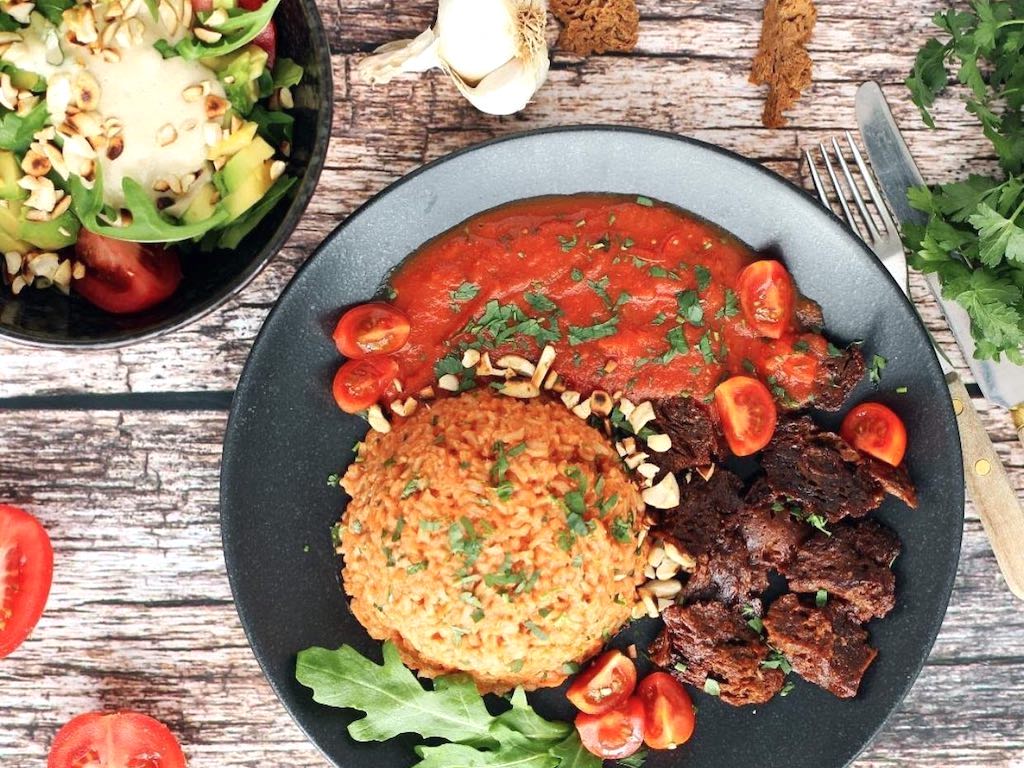5 Mins Read
Alternative protein innovation is heating up all over the world—and Africa is no exception to the trend. While American food techs like Beyond Meat and Impossible Foods may have the spotlight right now, a rising cohort of startups across the African continent are making vegan meat tailored to Nigerian cuisine, cultured seafood in South Africa and so much more. Beyond entrepreneurs, the ecosystem is being supported by African VCs and nonprofits too.
Vegan startup innovation
Startups are popping up across Africa with no shortage of novel alt-protein innovations. In the vegan protein scene, VeggieVictory pioneered the concept in Nigeria, becoming the country’s first-ever plant-based meat brand.
Based in Lagos, the company’s range includes plant-based meals tailored to Nigerian cuisine, such as efo riro stews made with its ‘Vchunks’ vegan meat, as well as international fare like meatless soy-based burger patties, shawarmas and hot dogs. Catching the eye of international investors for its pre-seed, the company is now gearing up to launch vegan beef jerky.
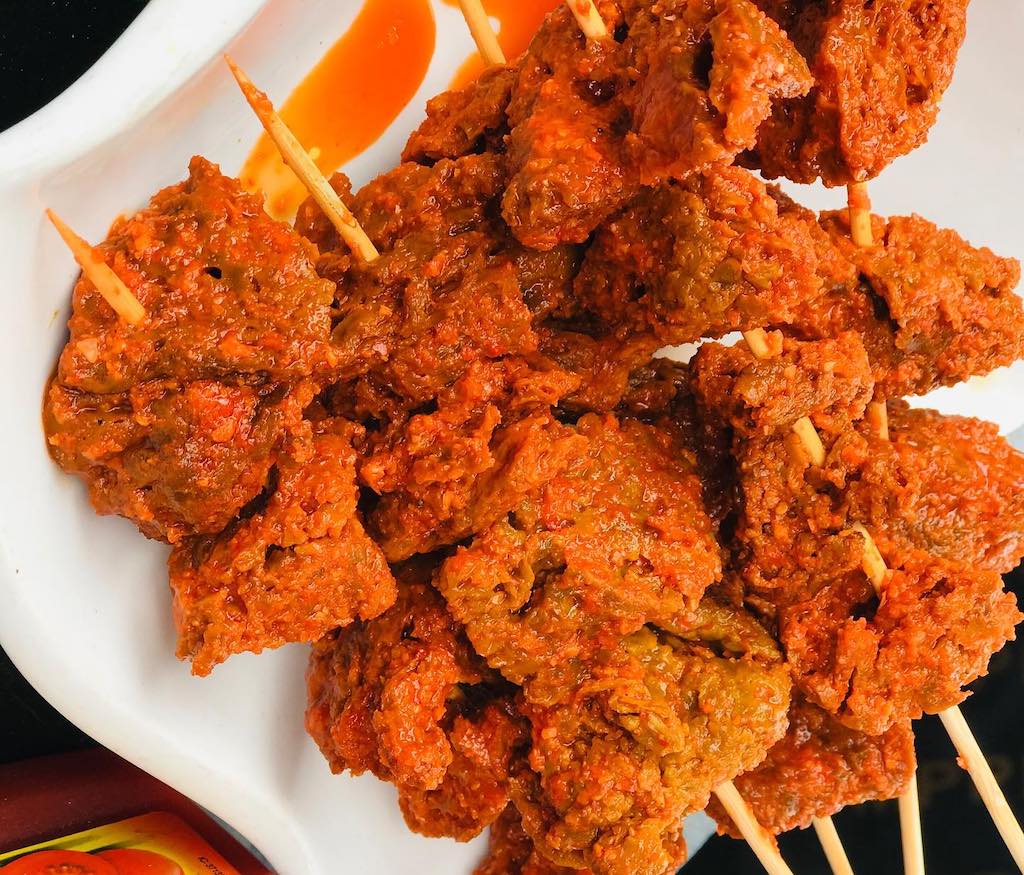
At the time, Hakeem Jimo, co-founder and CEO of the startup, said that the global funding was a sign of Africa’s strong potential for plant-based innovation. “We are excited to have won over these well-known investors not only for VeggieVictory, but the African continent as the next frontier for the plant-based movement.”
But Africa is also home to legacy plant-based brands, including Fry’s Family Food Co., which started back in 1991. Based in South Africa, the brand produces meatless nuggets, schnitzels, burgers, sausage rolls and sausages, and even vegan pies and pastries—an exception to the list of mostly Western-dominated early alt-protein adopters like Britain’s Quorn and America’s Lightlife.
In 2020, the brand was acquired by The LiveKindly Collective, joining the group’s umbrella of plant-based companies that include Oumph! and LikeMeat.
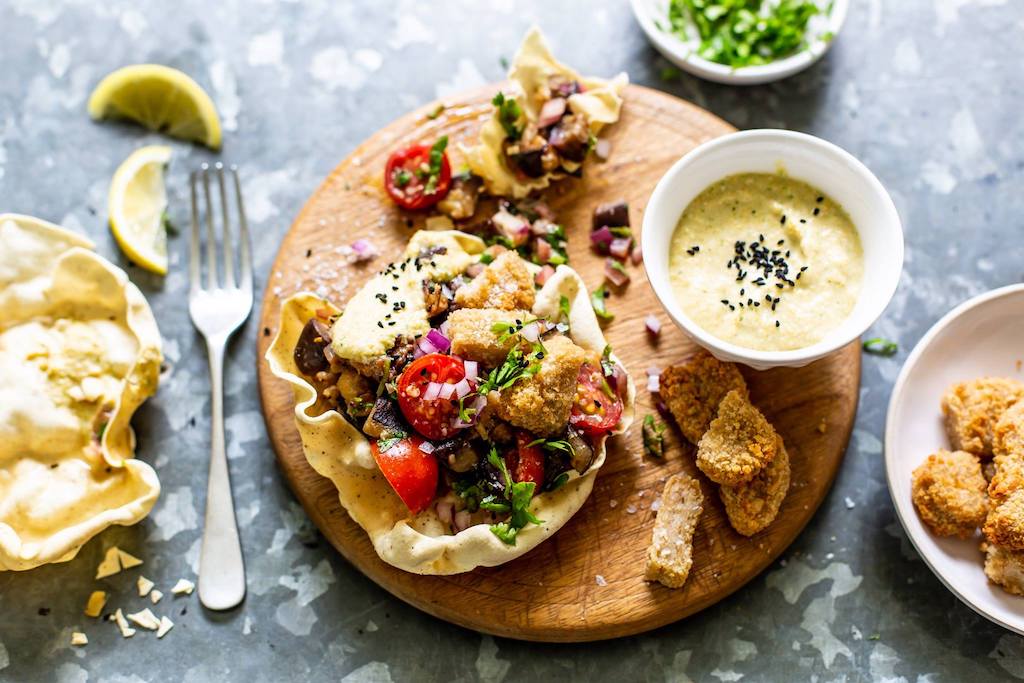
Animal-free protein, from cell-based to precision fermentation
While the continent’s plant-based industry is perhaps the most mature out of the three main pillars of the alt-protein world, African startups are also now leveraging other technologies, from cell-cultured to fermentation.
The first cell-based meat player landed last year in South Africa. Mzansi Meat, headquartered in Cape Town, is working on slaughter-free minced beef, burgers, and nuggets, but also cuts of meats that locals consume. Burgers and nuggets feature heavily in Western cuisine, but not as much in African dishes.
When the startup first launched last year, co-founders Brett Thompson and Jay Van Der Walt made clear that they would also be culturing “meat that can be used in traditional food”, not just Western-style meats. Now, the startup is boldly asking the country’s president Cyril Ramaphosa if they can borrow cells from his prize-winning Ankole cattle so they can grow the most sought-after cut of beef in South Africa.

Also based in South Africa is Sea-Stematic, the continent’s very first and only cell-cultured seafood firm. The woman-led company, founded by Marica Quarsingh just this year, wants to deliver fish and a whole range of seafood products that have been cultivated directly from cells not just to African plates, but to diners across the world.
And the region Sea-Stematic is most bullish about is Asia, a region set to drive nearly three-quarters of the projected 21% of the seafood industry’s demand growth in the next few years.
Then there’s De Novo Dairy, a startup that’s pivoting away from insect protein and tapping precision fermentation. The newest player on the block, the young company is using the same tech as Perfect Day to ferment and grow real dairy proteins without the cow, and turn them into bioidentical, cruelty-free and lactose-free cheeses, yogurts and ice cream.
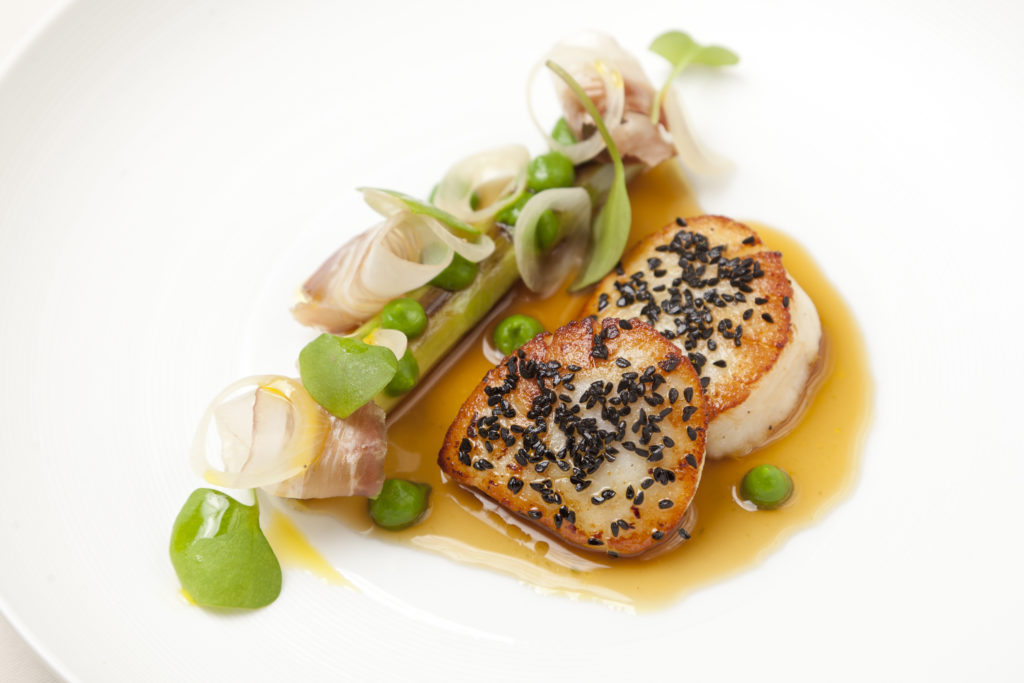
Ecosystem supporters
But beyond all the entrepreneur-led innovation, all these startups are being supported by a budding alt-protein African ecosystem, from domestic investors to nonprofits.
The Vegan Africa Fund, for instance, is a VC dedicated to helping scale plant-based ventures across the continent. Headquartered in Mombasa, Kenya, the firm wants to close the gap in access to capital that African entrepreneurs face, backing companies that are innovating novel made-in-Africa alt-proteins and helping build an industry that could become a net-exporter powerhouse for the world.
One of the companies it has backed include Vegan Basket, a 100% plant-based restaurant in Kilifi, Kenya, that first began serving diners in 2019. The startup, supported by Vegan Africa Fund, is now moving into launching retail products like ready-made vegan meals.
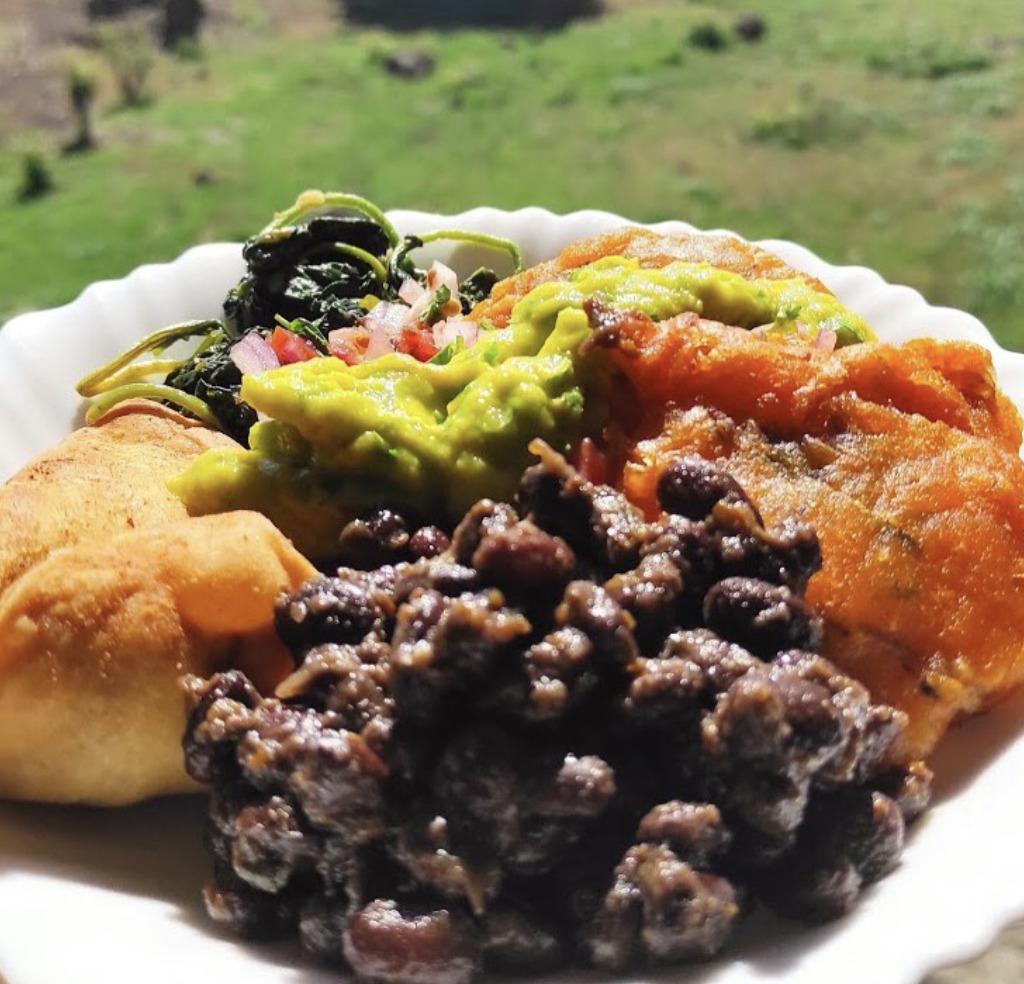
Part of why more consumers in Africa, like others around the world, are increasingly choosing plant-based is because of a variety of concerns. One of them, of course, being animal welfare. That’s where nonprofits like the Animal Advocacy Africa (AAA), an offshoot of the South African organisation Credence Institute, come into play.
AAA is helping to drive greater public awareness about the plight of animals, encouraging more funding into conservation projects and investing in education campaigns to change the perception of animal welfare as a predominantly Eurocentric concept.
The growth of the African plant-based industry is also aided by businesses like Infinite Foods, which is bringing more plant-based products into Sub-Saharan Africa. The platform, based in Johannesburg, South Africa, is providing an end-to-end service for international vegan brands to enter the African market—in doing so, giving the region’s consumers more choice when it comes to alt-protein foods.
In addition to working with more than 800 foodservice outlets across the continent, including in Mauritius and Botswana, Infinite Foods also offers e-commerce to bring brands like Beyond Meat and Oatly directly to consumers’ doors.
Lead image courtesy of VeggieVictory.


